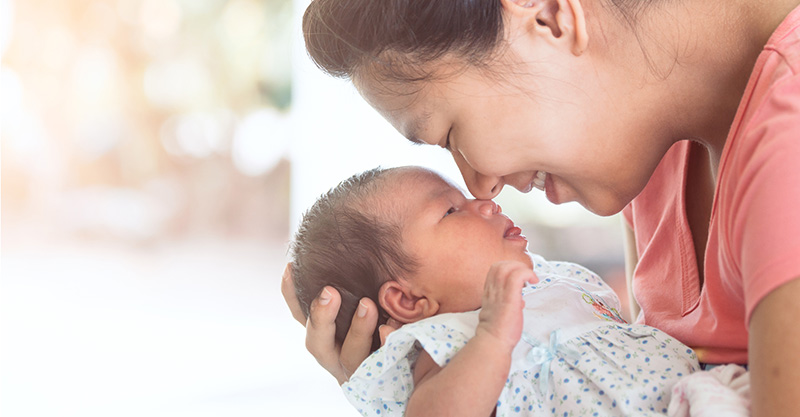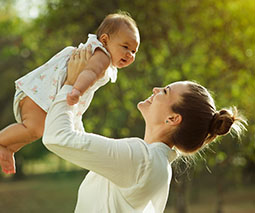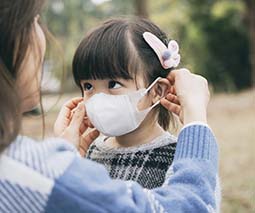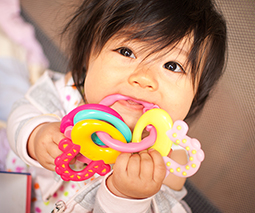How ‘The First 1000 Days’ can shape your baby’s health for life

Science tells us that the first 1000 days of a child’s life lays the groundwork for their future health and wellbeing. But how can we support our little ones during this special period of growth and development?
Pre-conception and pregnancy
Let’s start at the very beginning! The ‘first 1000 days’ concept officially begins with your baby’s conception but it’s worth noting the health of both parents before that is vital too. Factors like nutrition, general wellbeing, diet and lifestyle can influence the quality of parents’ eggs and sperm and their ability to conceive.
Once they do, the baby’s nutritional health during those first 1000 days – which encompasses conception, pregnancy and the first two years – can help shape a child’s future health and wellbeing. During this period, the environment a baby grows up in and the nutrients they are exposed to can influence their growth and development and contribute towards their long-term health. Additionally, mum-to-be’s pregnancy nutrition may also impact their child’s future health and wellbeing.
On top of a well-balanced healthy diet, families can also use supplements to help support mum, dad and baby through this important stage of development. The new Swisse Ultinatal range offers a range of premium quality formulas specifically tailored to provide nutritional support during pre-conception, pregnancy, breastfeeding and infancy.
After baby is born …
As a mother makes the life-changing transition from pregnant woman to brand new mum, she’s faced with a whole suite of fresh experiences … and breastfeeding may be one of them. Exclusive breastfeeding is recommended for babies under six months of age. Breast milk is the first food consumed by babies helping to provide energy and nutrients that babies need for the first months of life, and it continues to provide up to half or more of a child’s nutritional needs during the second half of the first year.
Early colostrum and mature breast milk can help protect babies from things like gastroenteritis, respiratory tract infections, ear infections and type-1 diabetes. Breastfed babies also have a lower incidence of SIDS.
Supporting a growing toddler
A child’s brain grows and develops more in these precious first 1000 days of life than at any other time.
By age two, a baby’s brain has developed from a few cells into a complex organ that helps them learn to walk, talk and play. Little noggins are primed for all sorts of exciting challenges – and a healthy start during these first 1000 days means this will help children reach their full potential.
Parents’ health will continue to influence how their children thrive. Having the energy to interact with and stimulate little people during these early days ensures they’re primed for success. This is because connections in a baby’s brain can be strengthened and reinforced via their parents and carers.
Energetic parents and their babies mirror sounds, gestures and expressions back and forth between them and it’s these interactions that help to fine-tune vital connections and growth. If a carer or parent is unresponsive, unengaged or unavailable, a child’s development, behaviour, education and health can be impacted for the long term.
Health and happiness are indeed a whole-family affair and prioritising them can help babies thrive in these first 1000 days.
This is a sponsored post for Swisse.
Always read the label. Use only as directed. Vitamin supplements should not replace a balanced diet.









